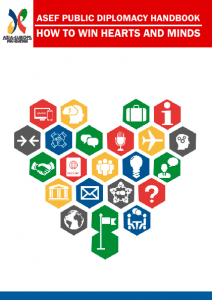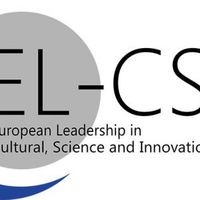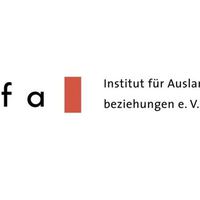Cultural Diplomacy as Discipline and Practice - EUNIC study

CULTURAL DIPLOMACY AS DISCIPLINE AND PRACTICE: CONCEPTS, TRAINING, AND SKILLS - a study is published by the European Networks of Institutes of Culture (EUNIC Global) as part of a research project mapping the training for cultural diplomacy.
The academic programs that explicitly mention cultural diplomacy in their title are found exclusively in Europe (apart from two exceptions: one in China and one in Russia); the majority are partnerships with the Institute for Cultural Diplomacy in Berlin , which is particularly active in this field. Outside of Europe, cultural diplomacy training is almost exclusively tied to public diplomacy or international communications, and mostly provided by academic institutions located in the US and Australia.
Contemporary international relations see an increasing role for cultural diplomacy as a foreign policy tool. The proliferation of international cultural relations managed by non-state actors moved also governmental actors to reshape and to reinvigorate their government-driven cultural diplomacy.
At the same time, the EU has shown an increasing interest in cultural diplomacy and cultural relations, to make, as Federica Mogherini clearly stated, culture “an integral part of the external action of the European Union.” (Joint communication to the European Parliament and the Council. Towards an EU strategy for international cultural relations, 8.6.2016, JOIN (2016)29). Along with energy and economic diplomacy, cultural diplomacy is definitively becoming a new field of EU external action (Global Strategy, June 2016, p.49).It is therefore important to understand what it is already done in terms of training and research in the field.
To this purpose, the European Networks of Institutes of Culture (EUNIC Global) commissioned the Department of Social, Political, and Cognitive Sciences of the University of Siena a report to survey existing cultural diplomacy training and research activities and to assess the training needs of the cultural diplomat of the future, as seen from practitioners and academics. This report was conducted between March and November 2016 and it addresses two main issues.
First, it maps the cultural diplomacy training already offered, at different academic levels, based on an extensive web scrap and search of BA, MA, and Ph.D. courses that include formal training in cultural diplomacy as part of their curricula. This search was conducted in three languages: English, Russian, and Chinese. Overall, more than 40 institutions in 10 countries offer programs covering cultural and public diplomacy. An analysis of the curricula shows that, on the whole, cultural diplomacy at the academic level is still a relatively uncharted territory, and there is a lack of specific training to the subject. Programs that explicitly deal with cultural diplomacy usually borrow their content from more consolidated disciplines (political science, international relations, and public communication).
Second, the report surveys what practitioners and academics operating in this field think are the main characteristics of cultural diplomacy, and what kind of skills, training, and knowledge will be essential in the future. The results presented in this report are based on a set of in-depth interviews and a larger online survey of approximately 160 people working in and studying the field.
The study concludes highlighting the need for more systematic theoretical and empirical research in the field of cultural diplomacy and making recommendations on how to address the existing gaps in knowledge and training.
 In connection with this topic, please also consult the ASEF Public Diplomacy Handbook. Published in 2016 as part of the Asia-Europe Public Diplomacy Training Initiative, the ASEF Public Diplomacy Handbook offers useful insights for diplomats and civil society actors on the topic of public diplomacy in Asia and Europe.
In connection with this topic, please also consult the ASEF Public Diplomacy Handbook. Published in 2016 as part of the Asia-Europe Public Diplomacy Training Initiative, the ASEF Public Diplomacy Handbook offers useful insights for diplomats and civil society actors on the topic of public diplomacy in Asia and Europe.
The handbook provides a theoretical foundation and practical tools to construct a successful public diplomacy campaign in the context of Asia-Europe relations. Each chapter combines theories on a relevant topic with useful information obtained from the authors’ hands-on experience. The accompanying interviews with high-profile professionals provide insightful knowledge on the role of public diplomacy in enhancing Asia-Europe cooperation.
Similar content
posted on
27 Sep 2018
posted on
20 Oct 2014
posted on
28 Jan 2019
posted on
25 Sep 2019
posted on
12 Oct 2017
from - to
12 Dec 2012 - 12 Dec 2012






